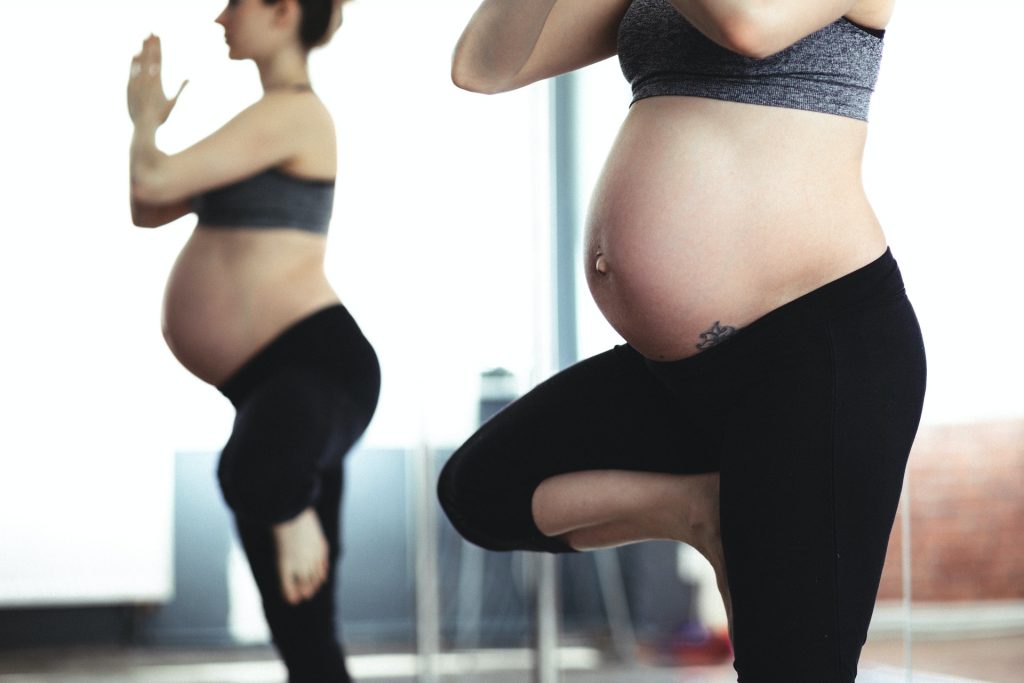We’re often asked how you can improve your own chances of getting pregnant. While there’s no one-size-fits-all answer, there are definitely some key lifestyle changes you can make to improve your chances that centre around your general health and wellbeing.
Smoking
Smoking is directly related to poor pregnancy outcomes, causing reduced egg quality, reduced implantation rates and placental problems in pregnancy. It’s therefore highly recommended that you quit smoking if you’re trying to become pregnant. It’s also worth noting that the NHS does not fund fertility treatment for people who smoke.
Body Mass Index

It’s important to maintain a healthy body weight to improve your chances of conception, carrying a healthy pregnancy and an uncomplicated childbirth. High BMI can affect the frequency and quality of ovulation, your metabolism and your pregnancy health overall, including a higher risk of developing diabetes, hypertension and pre-eclampsia. For NHS fertility treatment, BMI must be lower than 30.
Moderate exercise is safe when trying to conceive and during early pregnancy. For more advice and information on maintaining a healthy weight, click here: www.nhs.uk/live-well
Nutrition & Supplements
If you’re trying to get pregnant either naturally or through fertility treatment, you should take folic acid supplements. Folic acid helps to reduce the chance of the baby developing neural tube defects such as spina bifida. You should also aim to eat a healthy balanced diet, and minimise alcohol intake when trying to conceive. You may wish to consider a multivitamin with iron or a specific pregnancy vitamin (these usually include folic acid!).
If you’re trying to get pregnant either naturally or through fertility treatment, you should take folic acid supplements. Folic acid helps to reduce the chance of the baby developing neural tube defects such as spina bifida. You should also aim to eat a healthy balanced diet, and minimise alcohol intake when trying to conceive. You may wish to consider a multivitamin with iron or a specific pregnancy vitamin (these usually include folic acid!).

Mental Health
Experiencing fertility issues can feel stressful and isolating. Know that you are not alone: it’s okay to feel sad, anxious, frustrated or angry. Reassuringly, research shows that mental health does not affect the result of fertility treatment– but it can affect whether you choose to continue with treatment.
It’s important to look after your mental wellbeing during this time, so try to find what works best for you: exercise, journaling, meditation, finding a support group or counselling can all help. Click here to read more about caring for your mental health when trying to conceive: https://fertilitynetworkuk.org/caring-for-your-mental-health-when-trying-to-conceive/.
Know Your Cycle

Understanding your menstrual cycle can help to improve your chances of conception. It’s useful to keep a record of when your period starts, so that you can find out if you have a regular cycle and figure out when your fertile window is.
In a healthy regular menstrual cycle, day 1 is always the first day of your period, and your period should usually arrive every 26 to 32 days in a predictable manner. This regularity implies that you are likely to be having normal ovulation (release of egg) most cycles.
Ovulation usually occurs in the middle of the menstrual cycle, usually between day 8 and day 16, depending on the overall length of the cycle. Ovulation can be quite difficult to predict– and once ovulation has occurred, the egg has a very short shelf life of around 36 hours. Fortunately, sperm can survive in the fallopian tubes for up to 5 days! For this reason, your most fertile days are actually those just before ovulation occurs. Effectively the sperm can lie in wait for a day or two, ready to meet the egg as soon as it is ovulated.
When trying to conceive naturally, you don’t need to have sex every day! We recommend that you have unprotected vaginal intercourse every 2 to 3 days. Having sex every day can put extra pressure on you and your partner, and may actually decrease the quality of the sperm. Abstinence from ejaculation for 2 to 3 days prior to intercourse can help to ensure optimal sperm count and motility.
When to Seek Help
If you’ve been having regular unprotected intercourse for a year and haven’t become pregnant yet, it’s time to see your GP for some fertility investigations. If there is a known cause of infertility (i.e. you have endometriosis or a low sperm count) or you are 40 or over, you should see your GP after 6 months. If you are a single woman or same sex couple, seek help as soon as you are ready to start your fertility journey.
Got further questions?
We’re here to help and support you – get in touch, and a member of the team will get back to you as soon as we can.
